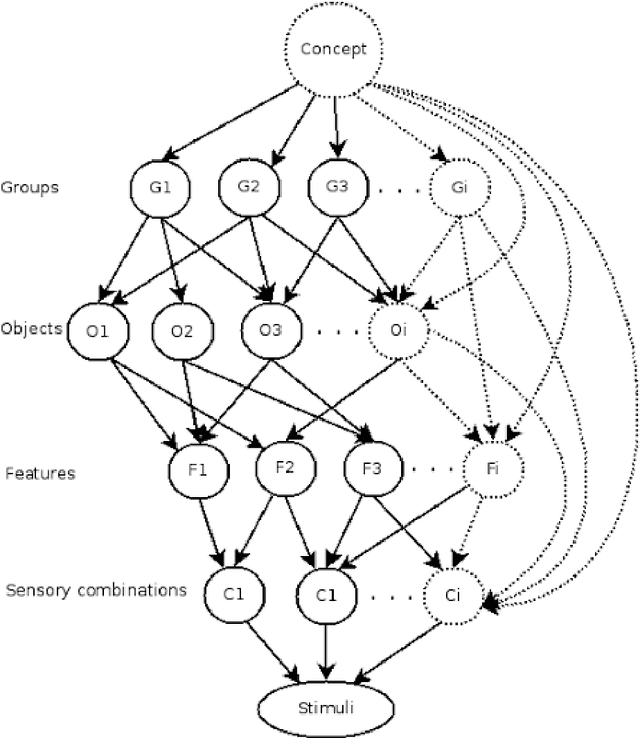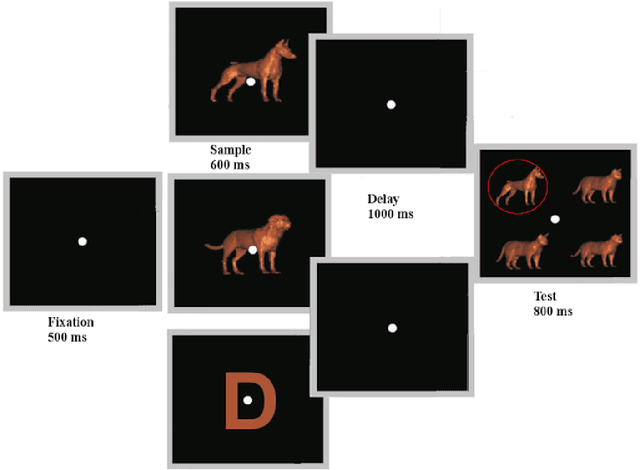Get our free extension to see links to code for papers anywhere online!Free add-on: code for papers everywhere!Free add-on: See code for papers anywhere!
Matthias Hub
Concept based Attention
May 11, 2016Figures and Tables:



Abstract:Attention endows animals an ability to concentrate on the most relevant information among a deluge of distractors at any given time, either through volitionally 'top-down' biasing, or driven by automatically 'bottom-up' saliency of stimuli, in favour of advantageous competition in neural modulations for information processing. Nevertheless, instead of being limited to perceive simple features, human and other advanced animals adaptively learn the world into categories and abstract concepts from experiences, imparting the world meanings. This thesis suggests that the high-level cognitive ability of human is more likely driven by attention basing on abstract perceptions, which is defined as concept based attention (CbA).
* NeuroSci.Proc.Suppl. 89 (2007) 4-11
* 7 pages, 2 figures
* 7 pages, 2 figures
Via
 Add to Chrome
Add to Chrome Add to Firefox
Add to Firefox Add to Edge
Add to Edge